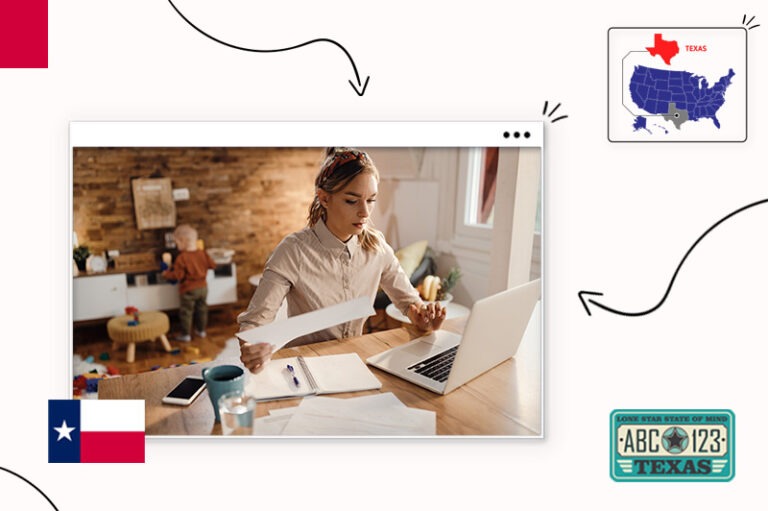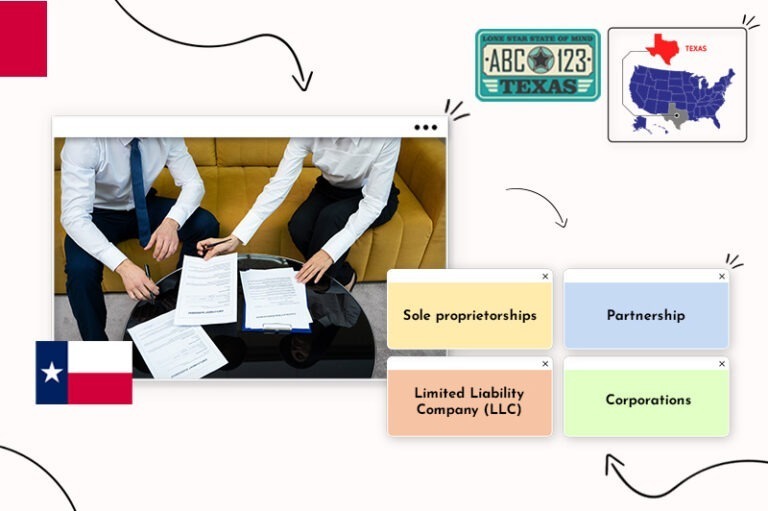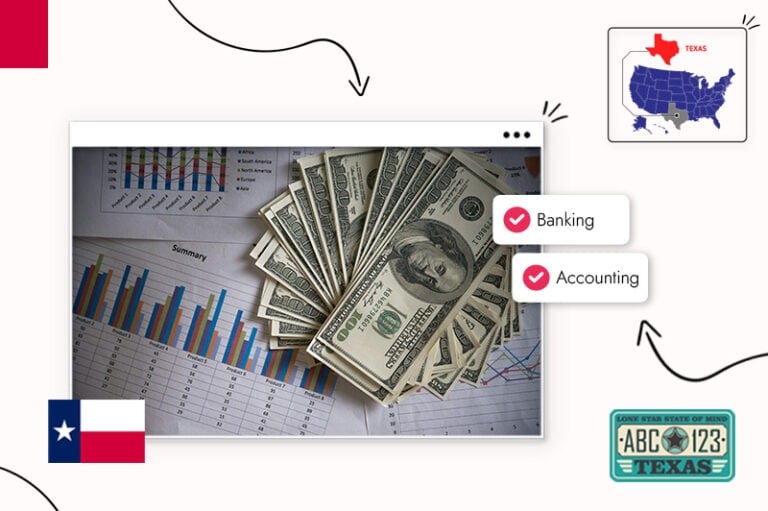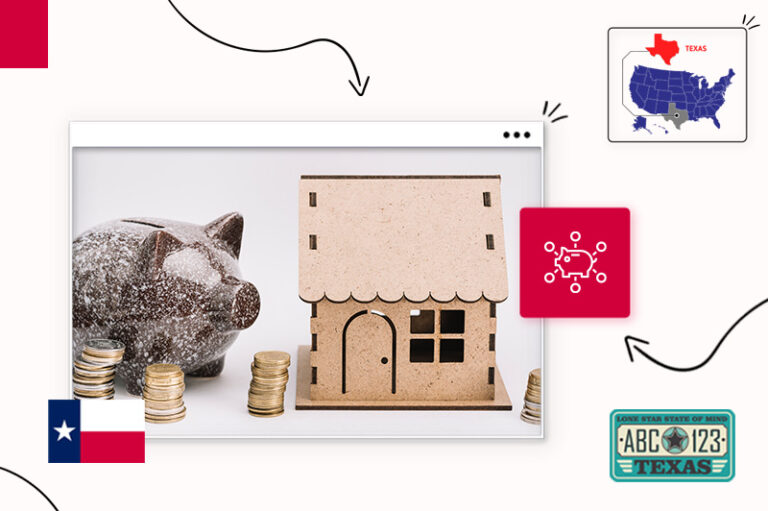Texas has affordable living costs, high-quality education, and a vibrant culture with diverse cities, state parks, rodeos, live music, museums, art galleries, wineries, and a vast cuisine.
No wonder Texas is the #1 state to do business in, according to Chief Executive Magazine.
But if you’re fixin’ to start a business in Texas, you can’t be all “hat and no cattle.”
You must follow state regulations for licenses and permits, taxes, and hiring employees. And choose a viable business idea, business name, and the right location to fulfill your Texan entrepreneurial dreams.
In this post, I’ll tell you how to start a business in Texas that’ll have you busier than a hound in flea season:
Here are the steps you need to follow to start a business in Texas:
- Fine-Tune Your Business Idea
- Create a Business Plan
- Choose a Business Name
- Choose a Business Structure
- Set up Banking, Credit Cards, & Accounting
- Get Funding for Your Texas Business
- Get Insured
- Obtain Permits & Licenses
- Find Your Team
- Market & Grow Your Business
- Open the Doors!
“If that ain’t a fact, God’s a possum.”
Step #1: Fine-tune your business idea
The first step in your entrepreneurial journey is choosing your business idea.
To choose one that has you running with the big dogs, consider these 3 things:
- You: Your business idea must excite you and suit your skills because then you’ll actually make it happen. “Come Hell Or High Water.”
- Your target audience and marketplace: It must be viable. Enough people must want it and pay what you need to charge. And your chosen marketplace must be cost-effective and have few established competitors.
- Location: Brick-and-mortar business owners must be where their target audience is. And provide a product/service that brings value to their community.
How to come up with a business idea:
- Choose a product or service: Your first step is to choose a service or product-based business idea relative to your skills and budget.
- Use your strengths: Play to your strengths and use your current experience and skills to start a business you can establish as an authority in your niche.
- Solve a problem: Find a service or product that’s in demand but has issues that users write negative reviews about, then solve them.
- Serve your public: Research which products or services are in high demand in Texas and start a business that fulfills a local need.
How to validate your business idea:
Many start-ups fail because they choose a product or service with low demand, low-profit margins, or high competition; you must validate your market to avoid this.
- Confirm demand: Use tools like Google Keyword Planner or Spyfu to check keyword search volume, Amazon for product rankings, and Facebook add campaigns to monitor interest.
- Validate the market: Define your market and use trends.Google.com to see if it’s stagnant, growing, or declining.
- Identify your competitors: Who owns your niche? If it’s a big brand, you might be itching for something you can’t scratch!
- Weigh up the costs: Make sure you can afford to enter your marketplace and run your business until you turn a profit.
- Check out the regulations: Research your niche and location regulations to determine their viability.
Brick-and-mortar entrepreneurs should also choose a business idea that suits Texas because you can tap into a lucrative market.
Popular Texas business ideas:
- Small construction companies
- 3D printing shops and services
- Skincare businesses
- Real estate (both small and large-scale)
- Services for older adults
- Import and export of goods from Mexico
- Security companies
- Food truck businesses
- Pet grooming and dog care
- CBD oil business
Step #2: Create a business plan

Texas is famous for many things, like the Alamo, BBQ, football, Longhorns, and Texas slang.
And one phrase sums up why you need a business plan:
“She’s itching for something she won’t scratch for.”
Which means dreaming of something too big!
Your business plan ensures your idea isn’t a dream and conveys your vision to those you need to make it a reality.
It does this by validating your idea, setting goals, creating timelines for achieving them, and convincing others to invest.
Here are the 3 key components of a well-written business plan:
Market research
When fixin’ to start a business in Texas, you must research your marketplace, target audience, and competitors to validate your idea.
You do that by asking and answering these questions:
- Is there enough demand for my product or service?
- Is my target market big enough to sustain my business?
- Who are my competitors, and can I afford to compete?
- What unique selling point (USP) does my brand provide?
You can then use your answers to create financial projections and a marketing plan.
Financial planning
A financial plan forecasts your future credits and debits to ensure you have enough cash to start and run your business.
Your plan also predicts your break-even point (when you’ll make a profit) so you can determine if you’ll need a loan.
It also provides projections so lenders can assess whether you’re a safe bet.
A financial plan must include:
- Your start-up costs: Every dime spent opening your business doors.
- An operating budget: Your daily fixed and variable business expenses.
- How you’ll generate revenue: Where and how you’ll sell your products/services.
Marketing strategy
Your business idea might be the “best thing since sliced bread,” but no one will know about it without a market strategy.
Here’s where you research your target market to find where and how consumers shop for what you’re selling. And you’ll run a competitive analysis to see which marketing strategies your competitors use.
The results will tell you what marketing strategies to invest in and where to promote them.
Choose a location
Online business owners have it easy.
You can choose a business-friendly and culturally vibrant location and enjoy the perks without worrying about foot traffic.
But location is everything for businesses that rely on passing traffic, like beauty salons, restaurants, and retail!
If that’s you, choosing the right location doesn’t have to be as challenging as putting socks on a rooster.
Just ask yourself the following questions:
- Does the location suit my business’s style?
- Does it fit my ideal client’s style?
- Is it in an area my target audience uses?
- Can my customers access my location via road and public transport?
- Is it convenient for deliveries?
- Does it have adequate water, sewage, and power supplies?
- Is it in my budget?
- Does the location comply with zoning laws and regulations?
Texas zoning laws and regulations:
Zoning laws control how we use properties for business, such as not allowing an adult bookshop next to a school or a factory in a residential area. Business owners must apply for zoning permits to run their businesses in a specific location.
Zoning laws are location specific, so contact your county clerk’s office or visit your local government website for more information.
Or, you can look on the Texas Economic Development & Tourism’s Business Permit Office (BPO) website or download the Texas Business Licenses & Permits Guide.
Decide If you’re an online only business
Now, you must decide whether you are an online-only business, a brick-and-mortar business, or both.
You can start from one and expand later, so keep that idea on the back burner.
To launch an online business, you’ll need a few key elements:
- A website: Every legitimate business needs a website where people can check reviews, make direct purchases, and locate you on platforms like Google Maps.
- Social media presence: Establishing a modest presence on social media platforms can affect your business’ sales. Research your competitors’ websites and follow their social links to identify the most suitable platforms for your target audience.
- Supply and distribution plan: E-commerce businesses and brick-and-mortar stores that offer delivery need a supply and distribution plan to ensure they have adequate stock and can reach customers anywhere.
- Tax laws may vary depending on the type of business: Texas residents who sell goods on or off-line and deliver to customers in Texas must get a Texas Sales & Use Tax permit from the Texas State Comptroller’s Office.
- Texas-specific regulations regarding online business: New business owners who want to sell online using their website, Amazon, Etsy, eBay, or Walmart, can find Texas-specific e-commerce business regulations on the Marketplace Seller website.
Step #3. Choose a business name

Your next step is to choose a business name that’s catchy and easy to remember. And it can’t be as common as cornbread; it must represent what your business offers and stands out in your industry to grab your audience’s attention.
Here are a few things to consider:
- Branding: Your business name is your brand. It should reflect your company’s values, mission, and personality. Think about what you want people to think and feel when they hear or see your name.
- Easy to remember: A good business name should be easy to remember so it sticks in people’s minds and is easy to find online.
- Domain name: Make sure the domain name (your website address) is available and matches your business name to create a professional online presence.
To come up with ideas, you can get creative with wordplay and combinations of words or use online name generators like Naminum and Panabee.
You can also use free tools to see how your name would look as a logo or on your packaging.
Texas naming laws and regulations:
Texas has specific rules for registering a business name.
- No two businesses can have the same or similar names.
- You must use “Limited Liability Company” or one of its abbreviations to form an LLC.
How to register your business name:
- Once you have a few names you like, run a business name search to ensure they’re available.
- Register the name with the Texas Secretary of State when filing your business entity.
- You can reserve a business name in Texas for up to 120 days for $40.
Register a DBA:
Sole proprietors, partnerships, and even LLCs who want to use a different business name can register a Texas Doing Business As (DBA) on the state’s online business services SOSDirect website.
Step #4: Choose a business structure

Business structures come in two forms, formal and informal.
Formal structures like LLCs and corporations are separate entities from their owners and provide liability protection.
Informal structures like general partnerships and sole proprietorships aren’t separate and offer no liability protection, meaning your assets are at risk of lawsuits and creditors.
Your structure choice often depends on your business type, liability exposure, if you’ll have employees, and need funding.
Some business structures are free to start, while others have registration fees and annual state franchise tax.
The common types of business structures
Sole proprietorship:
An informal, unincorporated structure with no separation between the business and the single owner who receives all profits and financial liabilities.
General partnership:
A partnership is like a sole proprietorship, informal and unincorporated, but with multiple owners.
Limited liability company (LLC):
A formal, incorporated structure that combines a sole proprietorship’s flexibility and a corporation’s liability protection. Most small businesses choose the LLC structure for easy maintenance and favorable tax.
S Corporation:
A separate legal entity that provides liability protection to its shareholders. It has more regulations and tax advantages than an LLC and is more popular with investors.
Learn more about Texas LLC formation in our step-by-step guide.
The tax advantages for each business structure
Sole proprietorship:
An informal, unincorporated structure with no separation between the business and the single owner who receives all profits and financial liabilities.
General partnership:
A partnership is like a sole proprietorship, informal and unincorporated, but with multiple owners.
Limited liability company (LLC):
A formal, incorporated structure that combines a sole proprietorship’s flexibility and a corporation’s liability protection. Most small businesses choose the LLC structure for easy maintenance and favorable tax.
S Corporation:
A separate legal entity that provides liability protection to its shareholders. It has more regulations and tax advantages than an LLC and is more popular with investors.
- The business doesn’t pay corporation tax.
- Shareholders can draw a wage, and the corporation pays 50% of their payroll tax liability.
- Shareholders receive further income as tax-free dividends.
How to register a business in Texas:
Sole proprietorships and partnerships can file a (DBA or assumed name) with their local county clerk’s office. LLCs and other incorporated business structures register via the Texas Secretary of State’s Office (SOS) website.
Step #5. Set up banking, credit cards, and accounting

All successful businesses have one thing in common.
Good bookkeeping.
Here’s the thing: it’s easy to do right and often a costly nightmare when done wrong.
Good bookkeeping means balancing your financial records. In layperson’s terms, that means adding up your credits (what you earn) and subtracting your debts (what you spend) monthly.
After that, it’s easier for your accountant to determine your final net profits and tax liability.
Business bank accounts, credit cards, and accountants have other benefits, too, so let’s see why you need them:
Business banking:
- LLCs and corporations need separate bank accounts to ensure the owners’ and businesses’ monies don’t mix. Doing so could lose the businesses’ liability protection by breaking the corporate veil.
- General partners and sole proprietors can enhance their credibility by using a business account in their business name.
- Business bank accounts make cash flow tracking and tax filing much more manageable, removing unnecessary stress.
Most Texas banks require you to have an EIN to open a business bank account, so sole proprietors and general partnerships should consider getting one.
Business credit cards:
- Many small businesses wait on invoice payments and need credit cards to see them through.
- Credit cards separate your business expenses.
- A favorable credit card account can help improve your credit history, reducing business loan interest rates!
- Start-up owners unable to get a credit card can apply for secured business credit cards that use a deposit as collateral.
Business accounting:
The job of an excellent accountant is to reduce your tax bill using relative tax deductions while ensuring you stay within local, state, and federal tax laws.
An accountant can only do this when you provide accurate bookkeeping, debits and credits, invoices, and receipts.
You can provide those using accounting software that links to your business bank account and credit card and lets you send invoices and monitor payments.
If those are beyond your current budget, an Excel sheet with columns for debits, credits, and monthly (auto sum) calculations can do the trick.
Step #6. Get funding for your Texas business

Most start-ups need funding; the difference between them is how they get it and at what cost.
For example, small business funding options include:
- Family and friends: Funding your Texas business using family and friends loans is an excellent way to source the capital you need at a lower cost than traditional business loans. Just ensure you create a documented agreement outlining your repayment terms.
- Small business grants: Grants are cash injections you don’t repay. State and county governments provide grants to small businesses to help boost local economies and encourage job growth.
- Small business loans: Start-ups can apply to banks and other lending institutions for small business loans at set interest rates and scheduled repayment times. Most lending institutions require a business plan with financial projections, a credit history, some form of capital, or a guarantor to get a business loan.
Fortunately, Texas offers county grant/loan incentives and other small business funding options.
Small Business Administration (SBA):
The SBA is an independent federal agency that supports small businesses through SBA-approved 3rd party business loans. Some loans include:
- SBA 7 (a) Loan in Texas: Low-interest, long-term loans of up to $5 million for working capital, equipment, and real estate.
- SBA 504 Loan in Texas: Low-interest loans from 10 to 20 years for fixed assets, real estate, and heavy equipment.
- SBA Express Loan in Texas: Fast loans with higher interest rates and short repayment times of up to $360.000.
For more information about SBA loans, visit the SBA.gov website and the Texas government department of Finance and Capital for small businesses.
Texas credit union:
The CUOT (credit union of Texas) provides fixed and variable low-interest, fixed small business loans, commercial mortgages, credit cards, and credit lines.
Texas grants and other loan options:
Small business owners can apply for Texas business incentives, like tax credits and grants; here are some places to look:
- Texas small business credit initiative: Access small business funding for start-ups and business growth.
- Incentive and financial programs: A list of investment opportunities for businesses creating employment in Texas.
- Micro-loans: Contact the Community Development Financial Institution of Texas.
- For local business incentives: Contact your local economic development representative.
You can also contact the Governor’s Small Business Assistance team at [email protected] for further information on small business resources.
Step #7. Get insured
Your next step in starting a business in Texas is getting insurance.
The cover you need depends on your business, daily operations, whether you’ll have employees, or your willingness to work without it.
Here are the 5 most common types of business insurance:
- General liability insurance: Covers damages caused by you or your employees to a client’s property and protects your business against litigation if someone is injured at your place of business.
- Professional liability insurance: Protects your business against personal injury, copyright infringement, and claims of negligence, inaccuracy, or undelivered work.
- Property insurance: Covers loss and damage to commercial property and assets, including inventory, equipment, and building.
- Business interruption insurance: Covers loss of income and expenses when a business cannot operate because of a natural disaster or illness.
- Workers’ compensation insurance: Covers employee medical expenses and loss of income when injured at work.
Texas insurance requirements:
There’s no Texas law saying you must have business insurance unless you have employees:
- Employers must pay Texas unemployment insurance (UI) tax for their employees every quarter.
- And while worker’s compensation insurance isn’t mandatory for small businesses, you must file an annual notice with the Texas Department of Insurance.
Step #8. Obtain permits & licenses

You don’t need a general business license in Texas. Still, you might need specific permits or licenses at the local, state, and federal levels.
- Local: Contact your city or county clerk’s office to learn about local licenses and permits.
- State: Visit the State of Texas and the Texas Department of Licensing and Regulation website for state licenses, occupational licenses, permits, and registration.
- Federal: Research the US Small Business Administration (SBA) guide.
Further information is available by downloading the Texas Business License and Permit guide.
If you have questions about licenses or permits, you can email the Business Permits Office.
Federal income tax and Texas local tax
Most businesses pay self-employment and a progressive federal income tax to the IRS.
Businesses with employees must also withhold 7.47% of their employee’s paycheck to cover (Medicare and Social Security), paying an equal percentage to the Internal Revenue Service.
Texas local tax:
Texas does not impose a corporate income tax. Instead, Texas imposes a franchise tax (an annual fee for doing business in a state or city) on incorporated companies like LLCs. Sole proprietors are exempt from the franchise tax.
- The franchise tax rate for businesses earning $20 million or less is 0.331%, and you file using the E-Z Computation form. The only businesses that do not pay franchise tax are sole proprietors.
- Texas also imposes a Sales and Use tax of 6.2% on any business or individual selling tangible goods. Counties and cities also have a separate sales and use tax which they add to the state tax.
You can see what sales tax your location charges by visiting the Comptroller.Texas.gov website.
Texas-specific regulations
Most folks need clarification on federal, state, and local taxes; fortunately, Texas is tax-friendly.
For example, business taxes are low, the state doesn’t impose a personal income tax, and businesses with profits under the Texas no-tax-due threshold pay no franchise tax.
Contact your county appraisal district and tax office for specific information on Texas business taxes.
And these FAQ Videos on Texas business taxes answer most questions regarding tax laws.
Step #9. Find your team

No matter how brilliant your business idea is, you need the right people to help you reach your full potential.
Even if this isn’t your first rodeo, and you plan on going solo, having a team to rely on is crucial to starting a successful business in Texas.
Complying with Texas hiring requirements and payroll regulations are just as important.
Let’s look at the people first:
People are the backbone of the business
Happy employees make happy customers, and happy customers make happy business owners.
Simple and true.
After all, your employees are the face of your business; they’re responsible for delivering to your clients, meeting deadlines, and running your daily operations.
So, it’s no exaggeration to say the people you employ or surround yourself with can make or break your business.
And it’s not only your employees; those you hire part-time and take advice from are equally important.
This includes the freelancers you use for outsourcing, experienced accountants on retainers, and fellow business owners within your network.
Remember, to be successful, hang with those who already are.
Comply with Texas payroll regulations
To hire employees in Texas, you must comply with payroll regulations and register with specific government departments.
So, before you conduct interviews, visit the Texas Businesses and Employers webpage and learn about state and federal employer requirements.
And take the following steps:
- Register with the IRS for employee taxes.
- Report new hires to the State of Texas https://portal.cs.oag.state.tx.us/wps/portal/EmployerHome Employer New Hire Reporting Operations Center.
- Register for Texas State Unemployment Insurance Tax.
- Pay at least the minimum wage of $7.25.
- And learn how to file your payroll taxes.
Once you’ve found your team and learned how to file your payroll taxes, consider using a payroll service to record employees’ hours, issue paychecks, and simplify your tax returns.
Hire contractors
Contractors are great news for start-ups because you can hire them for specific tasks on a need-only basis, save cash on employee costs like insurance and payroll taxes, and use their experience to drive your business forward.
And you can use them for anything, from content marketing to project management.
But you must hire your contractor correctly to avoid violating employment laws.
How to hire contractors in Texas:
- Hire contractors, not an employee: Contractors must set their own hours, work on a project basis, and work with other businesses separate from yours. Hiring and treating employees as contractors is illegal and can lead to hefty fines.
- Get the proper forms: Have your contractor complete a 1099-MISC miscellaneous income form if you pay more than $600 annually.
- Sign a contract: Ensure you and your contractor agree and sign a contract outlining their work and schedule to avoid disputes.
- Agree on payment: How and when you’ll pay your contractor? For instance, will it be a lump sum or an hourly rate upon completion?
Step #10. Market & grow your business

You know the movie “Field of Dreams” with Kevin Costner? And those famous words “build it and they will come”?
Well, here’s the thing, that only works in movies. No one will come knocking on your door or website without marketing.
But few new business owners know which marketing strategies to use, so they often opt for the spaghetti and wall technique, using everything to see what sticks!
Other start-ups have small marketing budgets.
Thankfully, the six most powerful marketing strategies are free; you don’t need previous experience, and they’re all as handy as a latch on an outhouse door!
Consider making special offers to attract your first customers
People are creatures of habit, and when we find something that works, we often stick with it.
And that’s a problem for your new business.
You’ll need some honey to attract prospects to your honey pot, i.e., special offers.
Some ways to get people buzzing are:
- Free samples
- Free shipping and returns
- Buy one, get one free promotion
- Cashback promotions
- Flash sales and discounts
- Vouchers and coupons
- Social media contests and giveaways
Look for local businesses or brands to collaborate with
You know the saying, “You scratch my back, and I’ll scratch yours,” that describes brand collaboration.
It’s all about joining forces with other brands within your marketplace (not direct competitors) to help promote each other’s products and services, increase your audiences, and make more sales.
Want to know how to find collaborators? Check out our video, where Natasha tells you everything you need to know:
Pay attention to online reviews; ask happy customers to review you
Often, you need to remind people to leave reviews, and that’s okay because happy customers love leaving reviews to tell others what a great choice they made.
And we love reading them; check these statistics out:
- 9 of 10 worldwide consumers consult reviews when discovering a local business (Podium, 2021).
- 8 out of 10 consumers consult reviews to learn more about local stores (BrightLocal, 2019).
- And 54.7% of shoppers read four or more product reviews before purchasing a product (Bizrate Insights, 2021).
How you get reviews when you’re just starting out depends on your sales platforms. But one proven way is to be exceptional at what you do, and ask people to leave them on your website, Google My Business listing, and social platforms.
The “pay attention part” is about replying to your reviews, especially negative ones, because how you respond has a tremendous influence on how people see your brand.
Look at this:
- “97% of shoppers who read reviews online also read business responses” (BrightLocal, 2019). Responding to unfavorable reviews shows you care about your customers. And that’s how you slam-dunk the following strategy.
Invest in word of mouth (happy customers attract each other)
Imagine you’re in Italy, don’t speak Italian, are molto affamato (hungry), and want to eat out.
There are only 2 trattorias.
One is empty and sad looking, and the other overflows with happy customers.
You choose the one with happy customers, right?
The same applies to your business.
Word-of-mouth marketing is when people tell other people how great your business is. It could be your product quality, brilliant customer service, or delicious pizza.
How to encourage word-of-mouth (WOM) marketing:
- Encourage user-generated content by asking happy customers to leave reviews on your website or local business listing.
- Promote those reviews on all your marketing platforms.
- Offer incentives to encourage WOM, like a referral program.
- Connect with other industry influencers and ask them to partner with your business.
But remember, “bad news travels faster than good news,” so to get WOM, you’ve got to be exceptional on every level.
Create unique, helpful content to showcase your activity
Have you found this post helpful?
Did it tell you how to start a business in Texas?
Great, its purpose is to help you, so you know we’ve got your back when starting a business.
We also use videos that help you with every step of your start-up journey.
You can also do it using a content strategy that helps your target audience and establishes you as a leader in your marketplace.
Creating a content strategy:
- First, find content that engages your target audience by checking out your competitor’s social websites and social media platforms.
- Next, choose the content that suits your brand and your target audience’s needs.
- Publish using a content calendar.
- Then encourage community feedback and engage when possible.
And before long, you’ll grow a community that knows they can rely on you to solve their problems.
And that’s when your last strategy kicks in:
Invite customers to opt into a mailing list or newsletter
Opt-in marketing is as hot as a honeymoon hotel and just as productive!
It’s a marketing strategy where you seek consent before sending prospects an email newsletter promoting your products or services.
Opt-in works because the folks who subscribe need what you’re selling, and if they’ve read your helpful content, they already trust your brand.
Step #11: Open the door!
Congratulations, you’re ready to start a business in Texas! All that’s left is to tell the world you’re open and get as busy as a one-legged man (or woman) in an ass-kicking competition.
Plan a successful launch event
A launch event introduces your business to your local or online community to create awareness, enhance your credibility, and build a buzz around what you’re selling.
There are 3 types of launch events: in-person, virtual, and hybrid. Your choice depends on your target audience, your goals, what you sell, and where you sell.
(Do you want me to add steps for throwing a launch party)?
Your launch event is also an excellent opportunity to find brand partnerships, encourage word-of-mouth marketing, and possibly land your first sale.
Land your first sale
I remember how exciting landing my first sale was in every business I’ve started, both physical and virtual.
There’s no other feeling like it because it confirms that your dream is a reality and your business idea is viable.
But it won’t happen by magic.
Follow our steps, validate your idea, put it where your target audience can find you, use promotions, and get those reviews.
After that, the sales will come.
Hey, maybe the eerie voice from the cornfield saying, “Build it, and they will come,” had a point!
Conclusion
There you have it; that’s how to start a business in Texas.
Remember, the key is not wasting your efforts and spending your precious time hollering down a well.
Follow the steps, start your business right, use the marketing strategies, and you could be as happy as a hog in mud before long.
I’ll leave the last words to the legendary Willie Nelson.
“No place like Texas would I ever roam. No place like Texas, my home, sweet home.”
FAQ
It costs $300 to register a legal entity like an LLC or corporation and $25 to file a DBA.
You’ll pay $300 to register an LLC with the Texas Secretary of State. After that, your running costs depend on whether you employ a registered agent and are liable for franchise tax.
LLCs with receipts less than $1.23 million annually are franchise tax-exempt, as are veteran-owned businesses for the first 5 years.
Texas ranks 3rd in the “best state to start a business in” Wallethub’s 2023 listings. With business running costs and tax rates below the national average, Texas is a great state to start a business in.
Texas doesn’t impose a general business license. Still, certain businesses will need specific certifications, licenses, permits, certifications, or authorizations at the local, state, and federal levels.
You’ll find which licenses and permits your business needs in the Texas Business License and Permit Guide.
The Lone Star State provides the perfect environment for start-ups with no individual, corporate, or state property taxes, many government-backed and non-profit business incentives, and a highly educated labor force.
Texas is definitely considered more business-friendly; of the 3 million businesses in Texas, 99.8% are small businesses.
Entrepreneurs and Fortune 500 companies choose Texas because the Lone Star state prides itself on supporting business owners.
